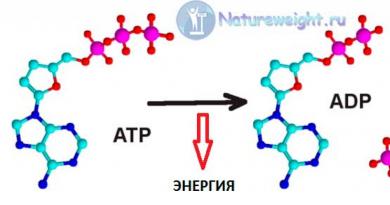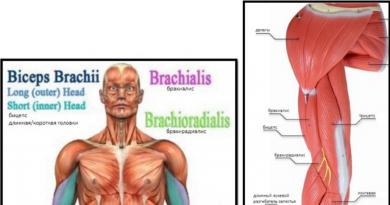The attitude of people to sports nutrition is ambiguous. Someone condemns "jocks" for using chemistry, not understanding what creatine, amino acids or proteins are for. Others, on the contrary, approve and even use it themselves, although bodybuilding is not their professional activity. And all because there is an opinion about the harm that these additives cause to the body. Terrible myths about a destroyed liver, male impotence and only emphasize the underdevelopment of sports culture among people.
Why use sports nutrition? The advice of experienced bodybuilders and professional trainers suggests that with the right combination of supplements, they help you achieve your goals faster: lose weight, give the body relief, increase muscle mass, increase endurance and energy during training.
What is creatine
One of the components of sports nutrition is creatine. It is an organic acid that is independently synthesized from amino acids such as glycine, arginine and methionine. In the human body, namely in the muscles, 95% of the total supply of creatine is contained. If you explain in a public language what creatine is for, then its main task is to increase endurance, promote muscle building and give the body relief.
The principle of action of creatine
During intense training, the natural supply of creatine quickly depletes. For the average person, this consumption is 2 grams. Accordingly, during physical exertion, the body requires a significantly larger amount of this acid. The body is not able to synthesize the required volume on its own, so replenishment from the outside is an excellent alternative and an indispensable tool for increasing
 Who needs creatine and why?
Who needs creatine and why?
Generally speaking, keratin is necessary for everyone who sets goals for themselves: improve anaerobic performance, increase strength and endurance during training. The main indicators for taking this drug are:
- increase in strength;
- increase in muscular and anaerobic endurance;
- building "dry" muscle mass;
- giving relief to the body.
Creatine also promotes fat burning by increasing physical activity and extending the time spent in the gym. According to studies, creatine is absolutely safe for the female body and has no contraindications. But for adolescents, it is better to take this drug after graduation (about 16-17 years old).
 Rules for taking creatine
Rules for taking creatine
There are such concepts as "loading phase" and "support phase". The first phase is a quadruple intake of creatine with a total weight of 10-20 grams for 7-10 days. This is followed by the second phase, during which the intake of creatine is reduced to 5-10 grams 2-3 times a day. In principle, the loading phase is not mandatory, it contributes to a faster result, but even without it, you will see positive dynamics just later. You need to drink creatine with clean water or juice with the calculation of 150-200 ml. for 5 gr. drug. It is also necessary to follow the correct intake cycle: creatine is used for 35-40 days, then alternates with a 30-day rest. It is not recommended to take the supplement for more than 2 consecutive months.
Creatine Safety
So, why do you need creatine in sports, we figured it out. Now let's talk about the other side of the coin. As mentioned, most people who have not personally encountered sports nutrition talk about its harmfulness and uselessness. To date, creatine is the most studied sports supplement. It has no side effects, which has been proven by scientists who used an unacceptable rate (25! grams) of creatine in studies. The only negative when using it for the first time can be frustration and fluid retention in the body. This only happens during the loading phase, i.e. within 2-5 days.
Time for training
If you are in the mood for classes in the gym, even if not professionally, but for yourself, consider the options for sports nutrition complexes. After explaining the purpose of your visit to the gym to the coach, ask for advice: where to buy sports nutrition, what exactly you need to take and how. In addition to sports supplements, consult about the daily diet and exercise complex, and water-salt balance.



